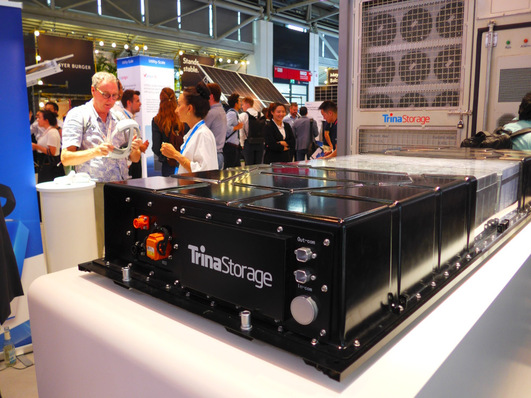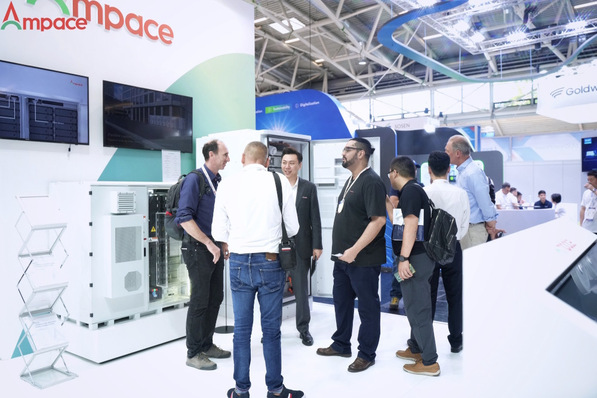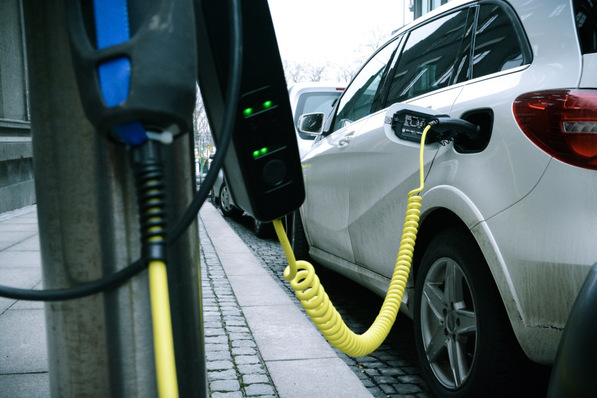Europe has embarked on the path to decarbonization. The automotive industry will make the switch to electricity. New cutting-edge technology projects, such as factories producing batteries for electric cars, known as gigafactories, present a significant area for growth in the Czech automotive industry. Given the situation in Czechia, such projects can contribute to the redevelopment of traditional coal-mining regions, which will need to undergo transformation as the dawning of a climate-neutral economy approaches. Gigafactories are a major opportunity for Czechia that can have a significant positive effect on the entire economy. In the near future, two battery factories could be built in the country as outlined in the latest study produced by Deloitte for the Modern Energy Union, The Development of Battery Production in Czechia.
The calculations presented in the study indicate that in the investment phase alone a single factory with a 40 GWh production capacity could create about 6,000 jobs. Once a single gigafactory is up and running, it could indirectly create an additional 33,035 jobs in manufacturing and at companies supplying factory inputs. A single gigafactory would increase Czechia’s GDP by 172.1 billion Kč.
Economy in Czechia heavily dependent on the automotive industry
The European Union has set the ambitious target of achieving carbon neutrality by 2050 and by 2030 reducing greenhouse gas emissions by 55% compared with 1990 levels. The European Commission has also proposed a ban on the sale of new petrol and diesel vehicles by 2035. This would have a major impact on the automotive industry, which in Czechia contributes 10% to the GDP, amounts to one-quarter of all industrial output, and employs half a million people (including in related industries). The transformation of this sector is inevitable. It will mean the end of certain professions and the overhauling of production capacities and facilities. It will also affect the performance of the economy.
“Having a battery factory, even two, is a logical and strategic step for Czechia because our economy is heavily dependent on the automotive industry. Time is of the essence though. And those that move forward the quickest will be holding all the cards. Although the Czech government has signed a memorandum with ČEZ, it is necessary to urgently address what kinds of support will be offered and actively seek investors and strategic partners. We must realize that if we do not build up production capacity here it will certainly be built up elsewhere in Europe. But that will mean jobs and added value leaving our country,” said Josef Kotrba, Deloitte’s chairman and head of the energy consulting team.
Phasing out of coal – new jobs
The Modern Energy Union has also noted that the development of battery production in the two Czech regions affected by the phasing out of coal will also support growth in renewable energy. Both regions have the potential to build solar power plants that will generate thousands of megawatts of electricity. “Photovoltaic capacity can increase in areas formerly dominated by coal power plants and mines. Thus, a symbolic transformation could take place. Regions heavily affected by mining activities would turn into centres of coal-free energy,” adds Martin Sedlák, the programme director of the Modern Energy Union.
Decarbonization and the phasing out of coal and oil cannot be achieved without finding and applying solutions for storing energy on a mass scale. Batteries will play a key role here. They will be essential not only for the transportation sector but also for storing surplus solar and wind energy. Europe is currently limited by its dependence on the import of Asian batteries. But things should change soon, as one of the EU’s strategic priorities is to become a leader in developing and producing batteries and to have the entire production process and the sustainability of the entire battery life cycle under control.
13 – 17 battery gigafactories in Europe
It will be necessary to build adequate production facilities to meet European demand. It is estimated that the European demand for energy storage will be approximately 450–630 GWh in 2030, and 1,000–1,400 GWh in 2040. Given the average production capacity of a single gigafactory, to meet this demand 11–16 factories would have to be built by 2030, and 26–35 by 2040. Covering the estimated demand for 510 GWh of battery storage in the V4 countries and Germany would require approximately 13–17 gigafactories.“
Did you miss that? McKinsey sees Europe is becoming a pioneer in e-mobility
The countries of Central Europe realize the importance of having battery-production facilities within their borders and are actively supporting their creation. The most frequent form is direct support to the tune of several hundred million euros, followed by investments in infrastructure and tax breaks. Our neighbours Poland and Hungary already have factories up and running, and more are being planned. There aren’t so many barriers preventing Czechia from producing batteries in the region, and building gigafactories in our country will provide a necessary spark for transforming coal-dependent regions. They will create new jobs in a sector with high added and technological value,” says Martin Sedlák, programme director of the Modern Energy Union.
A chance for the Ústí nad Labem and Karlovy Vary regions
There are several suitable sites in Czechia where gigafactories and related facilities could be built. The best possible locations are post-mining brownfields in the Ústí nad Labem and Karlovy Vary Regions, where even work on planning such projects would increase economic activity.“ For our region, developing a battery factory is a strategic project. Such an investment, thanks to its transformative potential, could even be co-financed with European funds. It will create new jobs, increase economic activity in the region, and support the region’s overall sustainability,” says Jan Schiller, the governor of the Ústí nad Labem Region.
An input-output analysis determined the economic benefits of one factory to be following:
The Czech GDP (gross value added) would increase by a total of 185.9 billion Kč, or 3.65% of the GDP in 2020.
The operation of a gigafactory would have a greater economic impact than its construction. Operating a single gigafactory would increase Czechia’s GDP by 172.1 billion Kč, and constructing it, by 13.7 billion Kč
.During the investment phase, a single factory producing 40 GWh of storage capacity would create about 6,095 jobs. Once the gigafactory is up and running, about 33,035 new jobs would be created, both directly at the production facility and indirectly at companies supplying factory inputs.
During the entire period studied, the project would contribute 48.6 billion Kč to public finances (at the level of the central government, region, and municipality).(The analysis does not take into account investments in the creation of a regional supply chain itself.)
The benefits of building gigafactories in Czechia are as follows:
Czechia is strategically located and can offer suitable sites for such projects in regions affected by coal mining. Projects contributing to the transformation of such regions are supported by the Just Transition Fund.
The project will create new jobs, both directly and indirectly. It will attract related economic activities and services. It will thus contribute to increasing the region’s attractivity for other investors.
Czechia is home to the largest lithium resource in Europe (nearby Cínovec in the Krušné hory Mountains). It also has manganese deposits (in the Pardubice region). The production of batteries will be able to sustain an entire value chain––from the input of raw materials and the production of batteries, to their second-life use and recycling.
The project will provide new know-how in cutting-edge manufacturing. Close cooperation with technical schools and the creation of new fields of study beginning at the secondary school level are anticipated. The goal of such cooperation should not be just to educate future employees but also to contribute to research and development.
Czechia has an excellent educational system and a qualified workforce. One of Czechia’s major advantages is its competitive labour costs, especially in comparison with Germany.
Considering the anticipated increase in demand for batteries, the market has not yet been saturated. Several automobile manufacturers in Czechia, led by Škoda Auto, have adapted their strategies to follow the electromobility trend. It would only be logical to supply domestic automakers with domestic batteries.
Efforts at reducing the carbon footprint of the battery-production process will indirectly lead to supporting renewable energy.
Many of the necessary investments would be financed by Czech capital. Thus, the project would partly contribute to stopping capital outflow from Czechia.
Necessary conditions for the gigafactory project to be successful
A fundamental step was the signing of a memorandum of support for building gigafactories between the Government of the Czech Republic and ČEZ. Now, it is necessary to specify the follow-up steps and the types of support that will be offered (direct subsidies, tax breaks, job creation subsidies, creation of hard and soft infrastructure, etc.). Gaining strategic foreign partners is essential for such projects to take shape. If investors can be attracted, in the near future two battery factories could be built in Czechia that would provide many economic opportunities.
Also interesting: Akasol opens gigafactory
One way to motivate investors could be through the new packages of investment incentives that have been proposed as part of projects for regional transition. It would also be suitable to increase the number of soft incentives offered. Decisions should be made about these two potential projects at the end of 2021. (hcn)
You can read Deloitte’s study The Development of Battery Production in Czechia here (available only in Czech).







